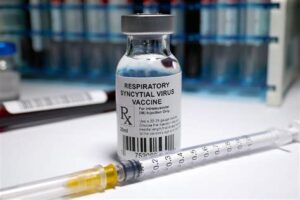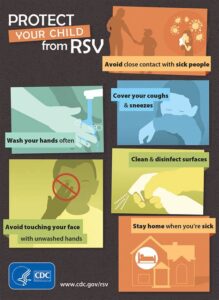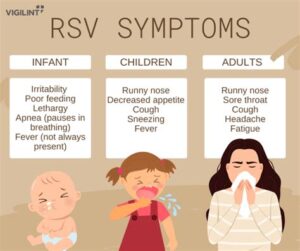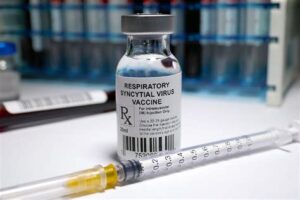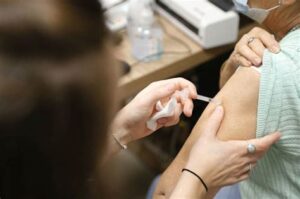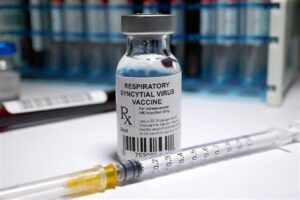Explore the RSV vaccine: its protection duration, factors affecting longevity, ongoing research, and tips to maximize effectiveness for optimal health.As respiratory syncytial virus (RSV) continues to be a significant concern, particularly for infants and the elderly, understanding the longevity of the RSV vaccine is crucial for safeguarding vulnerable populations. In this blog post, we will explore the ins and outs of the RSV vaccine, beginning with an overview of how it works and what it aims to achieve. We will delve into the duration of protection the vaccine offers, highlighting the various factors that can influence its effectiveness over time. Additionally, we’ll examine the latest research on how long the immunity lasts and discuss strategies for maximizing the vaccine’s benefits. Join us as we shed light on these vital aspects, helping you better navigate RSV prevention and care.
Understanding RSV Vaccine
RSV, or Respiratory Syncytial Virus, is a common virus that causes mild, cold-like symptoms in adults and older healthy children, but it can lead to more serious conditions in infants and the elderly. The RSV vaccine is designed to provide protection against this virus, especially for vulnerable populations.
The development of the RSV vaccine has been a significant milestone in public health. With ongoing research, scientists aim to create a safe and effective vaccine that can be widely administered. The vaccine not only aims to protect individuals from severe illness but also to reduce the overall burden of RSV on healthcare systems.
Current vaccines are primarily targeted at high-risk groups, such as premature infants, children with certain heart conditions, and elderly patients. By understanding the RSV vaccine, its purpose, and how it functions, we can better appreciate the importance
Duration of RSV Vaccine Protection
The Respiratory Syncytial Virus (RSV) vaccine is a significant breakthrough in the fight against RSV, a virus that causes severe respiratory infections, especially in infants and young children. Understanding how long the RSV vaccine protection lasts is essential for parents and healthcare providers alike.
Currently, studies suggest that the duration of protection from the RSV vaccine may vary depending on several factors, including the age at which a person receives the vaccine, their immune system response, and any circulating strains of the virus. On average, the vaccine can provide protective immunity for up to 6 months to 1 year, but ongoing research is necessary to determine more precise timelines.
It is important to monitor ongoing studies and guidelines from health authorities, as they will provide updates on the RSV vaccine and its effectiveness over time. Keeping informed will help ensure that those at risk receive adequate protection when needed.
Factors Affecting Vaccine Longevity
Several factors can significantly influence the longevity of the RSV vaccine. Understanding these factors is crucial for ensuring optimal protection against respiratory syncytial virus (RSV), particularly for vulnerable populations such as infants and the elderly.
- Age of the Recipient: The immune response can vary significantly based on the age of the individual receiving the vaccine. Infants and older adults may have a weaker or shorter-lived response compared to healthy adults.
- Health Status: Individuals with compromised immune systems or underlying health conditions may have a reduced ability to mount an effective response to the vaccine, potentially leading to shorter protection duration.
- Previous Infections: A history of RSV or other respiratory infections may impact how long the vaccine’s protection lasts. Previous natural infections can sometimes lead to a more robust immune memory.
- Vaccine Formulation: Different formulations of the RSV vaccine may trigger varying levels of immunity and duration of protection. Ongoing research aims to identify the best formulations for long-lasting immunity.
- Booster Doses: The need for booster doses may also play a role in extending the duration of vaccine-induced protection. Regular updates and studies on boosters can help maintain immunity over time.
Research studies have suggested a correlation between these factors and how long the RSV vaccine remains effective. By continually assessing these aspects, health authorities can design better vaccination strategies tailored to specific populations.
Ultimately, understanding the factors affecting vaccine longevity will help healthcare providers and patients make informed decisions about RSV vaccination. Enhanced awareness can lead to improved vaccination schedules, ensuring that vulnerable groups maintain adequate protection against serious RSV-related illnesses.
As more data becomes available from ongoing clinical studies and real-world applications, we will continue to refine our knowledge of RSV vaccine effectiveness and longevity.
Research on RSV Vaccine Duration
Research on the RSV (Respiratory Syncytial Virus) vaccine duration is a crucial area of study, especially given the virus’s impact on infants and older adults. Ongoing studies aim to better understand how long the vaccine-induced immunity lasts and the factors that may affect this duration. Recent clinical trials have started to yield promising results regarding the longevity of protection provided by the RSV vaccine.
One significant aspect of the research focuses on the immunological response elicited by the RSV vaccine. Preliminary findings suggest that the immune memory, which enables the body to respond quickly to infections, may continue for several months post-vaccination. Studies involving various populations have shown variability in immunity duration, prompting scientists to explore factors like age, underlying health conditions, and previous RSV exposure.
Additionally, scientists are investigating different vaccine formulations and schedules to determine their impact on longevity. For instance, the use of adjuvants in vaccine formulations may enhance and prolong the immune response. Continued research in this area is vital for developing effective vaccination strategies that ensure lasting protection against RSV, ultimately aiming to reduce
Maximizing Effectiveness of RSV Vaccine
To ensure that the RSV vaccine achieves its maximum potential, several strategies can be employed. These approaches focus on enhancing the body’s immune response and ensuring broader protection against the respiratory syncytial virus (RSV).
Firstly, it’s essential to administer the vaccine at the optimal age. Current research indicates that immunizing infants and young children who are at high risk can significantly increase the vaccine’s effectiveness. The Centers for Disease Control and Prevention (CDC) recommends specific timing based on individual risk factors and seasonal outbreaks.
Secondly, maintaining a child’s overall health can influence the efficacy of the RSV vaccination. Regular check-ups with pediatricians to monitor health conditions, providing a balanced diet, and encouraging vaccinations for other illnesses can contribute to a more robust immune system, thus enhancing the RSV vaccine’s effectiveness.
Finally, it is crucial to stay informed about new developments in RSV vaccine research. Being aware of updated guidelines and recommendations from health authorities can maximize protection against RSV. Engaging with healthcare providers and ensuring timely boosters can also play a significant role in the longevity of the vaccine’s effectiveness.
Frequently Asked Questions
What is RSV and why is a vaccine important?
RSV, or respiratory syncytial virus, is a common virus that causes respiratory infections, particularly in infants and older adults. A vaccine is important to prevent severe cases and hospitalizations caused by this virus.
How long does immunity from the RSV vaccine last?
The immunity provided by the RSV vaccine generally lasts for several months, but ongoing research aims to determine the exact duration, as it can vary depending on the type of vaccine and the individual’s immune response.
Are there different types of RSV vaccines available?
Yes, there are different types of RSV vaccines, including live attenuated vaccines and subunit vaccines, which are under various stages of research and development.
Can the RSV vaccine be given to everyone?
Currently, the RSV vaccine is primarily recommended for high-risk populations, such as infants and the elderly. However, broader recommendations may evolve as more data becomes available.
What are the side effects of the RSV vaccine?
Common side effects of the RSV vaccine may include mild fever, fatigue, and localized pain at the injection site. Serious side effects are rare.
Is booster vaccination required for RSV?
As of now, it depends on ongoing research and development of the vaccines. Current studies are exploring the need for booster doses to maintain immunity.
What should I do if I suspect RSV infection after vaccination?
If you suspect an RSV infection after vaccination, it is important to consult a healthcare professional for appropriate evaluation and treatment.
